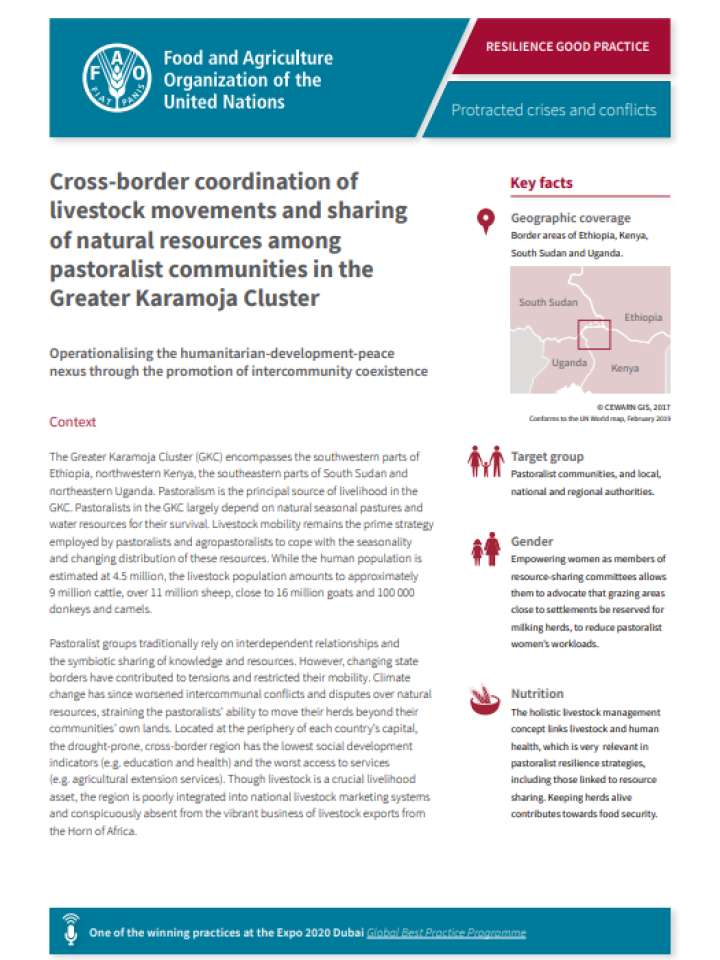Cross-border coordination of livestock movements and sharing of natural resources among pastoralist communities in the Greater Karamoja Cluster
This report addresses the topic of cross-border coordination of livestock movements and sharing of natural resources among pastoralist communities in the Greater Karamoja Cluster (GKC), a region that encompasses the southwestern parts of Ethiopia, northwestern Kenya, the southeastern parts of South Sudan and northeastern Uganda. The target groups are pastoralist communities as well as local, national and regional authorities.
Pastoralism is the principal source of livelihood in the GKC. Pastoralists in the GKC largely depend on natural seasonal pastures and water resources for their survival. Pastoralist groups traditionally rely on interdependent relationships and the symbiotic sharing of knowledge and resources. However, changing state borders have contributed to tensions and restricted their mobility. Climate change has since worsened intercommunal conflicts and disputes over natural resources, straining the pastoralists’ ability to move their herds beyond their communities’ own lands.
Harmonized initiatives by FAO, IGAD and non-governmental organizations (NGOs) that promote the sharing of pastoral natural resources and the coordination of cross-border livestock movements build on a tradition of resource sharing between neighbouring clans. The sharing and coordinated use of natural resources promotes the peaceful co-existence of pastoral communities by protecting their key livelihoods assets and boosting their resilience. FAO strongly believes that the modest costs involved in bringing together communities across borders to discuss the management of resources and resolve potential conflicts are more than offset by the benefits: improved resilience and strengthened livelihoods, better natural resource management, more trade and peace.
The promotion of cross-border collaboration takes places at three interdependent levels:
- the community level
- the level of the national government (policymaking and the provision of technical assistance), and
- the regional level (IGAD).
Explore further
